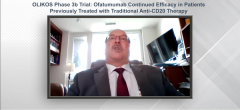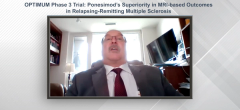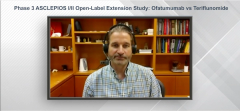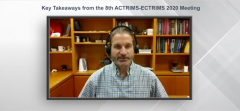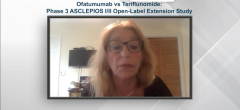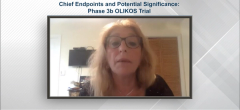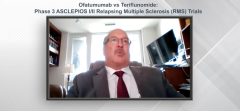
OLKIOS Phase 3b Trial: Pivotal Endpoints and Potential Significance
Episodes in this series

A key opinion leader underscores pivotal endpoints from the ongoing OLIKOS study and potential significance in treating multiple sclerosis.
Robert Naismith, MD: OLIKOS is a 1-year open-label study. In reviewing the study design and some of the key outcomes, the plan is to enroll 100 patients who are stable on ocrelizumab and switch them to subcutaneous ofatumumab. Patients will be followed out to a year, and investigators will evaluate imaging, disability measures, quality of life, adverse events, and different B-cell and neurofilament parameters. It’s a small study looking at the safety, tolerability, and some open-label efficacy endpoints in a short duration upon switching from one method of administration to another.
The significance, perhaps, is that it can provide some data on when such a switch can be made. The return of B cells with ocrelizumab can be quite prolonged. Off the top of my head, I wonder whether a switch would be made after a long duration off ocrelizumab or whether you would empirically start it at 6 months or so. In the OLIKOS study, they did empirically start it at the 6-month time frame, plus or minus a month here or there. This may provide some guidance and insight regarding what would be the treatment practice if a patient, for whatever reason, wanted to go from 1 formulation to another.
Newsletter
Keep your finger on the pulse of neurology—subscribe to NeurologyLive for expert interviews, new data, and breakthrough treatment updates.

